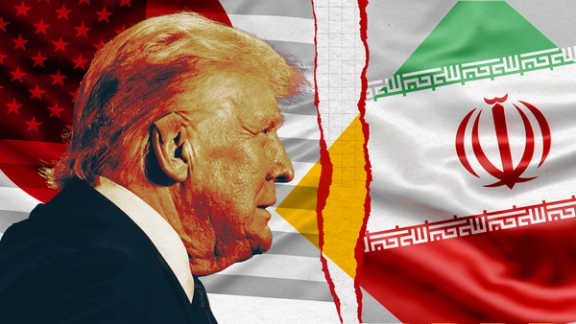Debates simmer in Washington over Trump’s approach to Iran nuclear talks

Debate is growing in Washington over talks with Iran, with hawkish Republicans urging against appeasing Iran's theocratic rulers but some observers saying the mercurial president might have a historic shot at clinching a deal with Tehran.
The debate has exposed unexpected fractures: US President Donald Trump’s own allies are split, while some longtime democratic critics of the president have cautiously praised his approach—highlighting the unpredictability of the current diplomatic moment.
Robert Malley, the former Biden administration Iran envoy who was sidelined for allegedly mishandling classified information, told The Free Beacon he is “optimistic” about Trump’s upcoming nuclear talks with Iran.
Meanwhile, traditional opponents of diplomacy with Iran are sounding alarms. Republican Senator Ted Cruz posted on X that “anyone urging Trump to enter into another Obama Iran deal is giving the President terrible advice,” calling for unified support behind the idea that Iran must never be allowed to obtain a nuclear weapon.
Other hawkish GOP lawmakers have echoed that sentiment. In recent days, a group of Republican members of Congress sent a letter to Trump, urging him to pursue a Libya-style full dismantlement of Iran’s nuclear program—an approach that would go far beyond the terms of the original JCPOA.
Trump's former United Nations ambassador Nikki Haley posted online that she had previously raised alarm bells over Tulsi Gabbard, the director of national intelligence: “There is no room for Iranian sympathizers in the national security team of the US.”
Confusion
But the rift may be rooted in Trump himself, says Greg Brew, an Iran analyst with the Eurasia Group.
“The fact that it is Trump who is sort of leading the charge to get a new deal with Iran when he himself departed the original JCPOA in 2018, called it the worst deal in history," Brew said, referring to an original 2015 nuclear deal with Iran.
"Making this even more confusing, there is a decent chance that he himself favors the return to a deal that would look very similar to the JCPOA,”
Speaking on Fox news earlier this month, Trump's envoy Steve Witkoff seemed to suggest that a nuclear deal would permit Tehran to enrich uranium. A day later he appeared to walk back his comments and hardened his stance.
"A deal with Iran will only be completed if it is a Trump deal," Witkoff's official account on X quoted him as saying, adding that Iran must eliminate its nuclear enrichment.
Brew added the Trump team's ambiguous messaging is throwing both parties off balance.
“You have allies of Trump who hate the idea of diplomacy with Iran, who strongly back a military solution, perhaps even regime change of the Islamic Republic," Brew added. "Trump himself has said on numerous occasions that he's not interested in regime change, that he wants Iran to be successful, which is sort of throwing these groups into confusion."
Transformed political climate
Alex Vatanka, founding director of the Iran Program at the Middle East Institute, told Iran International that the political landscape in 2025 is very different from when the JCPOA was first negotiated in 2015.
“The Republicans are in the majority and it's a Republican party that really doesn't want to say no to President Trump,” said Vatanka. “He probably has the best shot that I can think of any president in the last many years, if not decades.”
Vatanka noted that those with Trump’s ear right now are pushing for diplomacy, not confrontation.
“Right now, obviously with these ongoing talks, it's the folks who are arguing for diplomacy that seem to have the ear of President Donald J. Trump.”
As negotiations inch forward, Trump’s own political calculus—and how he chooses to navigate the diverse viewpoints on his home front—may determine whether US diplomacy succeeds or collapses under the weight of its own contradictions.